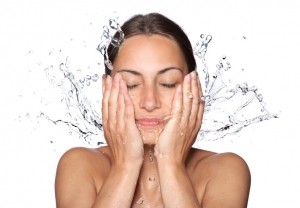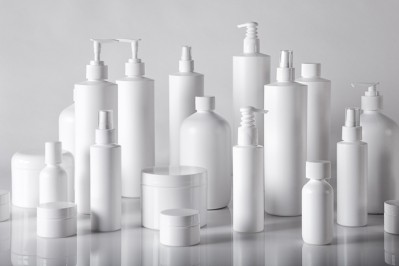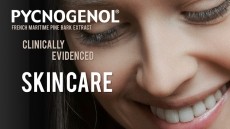UK FACIAL SKIN CARE MARKET TO DROP 1% IN 2019
Wash n’ wipe woes: UK women ‘grow tired’ of complex K-Beauty facial routines

According to market research major Mintel, the UK women’s facial skin care market is expected to decline by nearly 1% in 2019, falling to an estimated £1.16bn (€1.25bn) from £1.17bn (€1.26bn) in 2018 as women “grow tired of complicated facial skin care routines”.
Facial cleansing ‘casualties’
For the 12 months ending May 2019, 28% of UK women reduced the number of products in their facial skin care routine, with young Millennials aged 20-29 most likely to have simplified routines. The proportion of women using four or more products for facial cleansing fell sharply from 26% in 2018 to just 18% in 2019, while the number using just one product rose from 25% to 28%.
Mintel said the “biggest facial cleansing casualties” were cleansing wipes, which experienced an 11% drop in the number of UK women using this product; cleansing washes with a drop of 5%; and toners with usage down 4%.
The number of women using day creams or lotions also declined 6%; use of night creams or lotions fell 4%; and use of blemish balms, colour correctors, and daily defence products slipped 6%.
The ‘au natural’ effect and desire to sleep
Speaking to CosmeticsDesign-Europe, Alex Fisher, global skin care analyst at Mintel, said UK women had stepped away from “more involved” K-Beauty inspired skin care routines, like double cleansing and the 7-skin method, in favour of overall wellness.
“The UK has developed a bit of an obsession with stress and sleep, and high-activity evening routines with lots of steps can make it more difficult to wind down before bedtime,” Fisher said.
“…These K-Beauty trends we talk about require a number of different products and so women are simply scaling back the number of steps and products they use.”
Most women (64%), she said, now spent less than 15 minutes on their evening routine, likely impacting facial skin care first and foremost.
The declines in facial skin care product use also aligned with a slip in make-up purchases, according to Mintel. Data suggested UK women who wore make-up, an estimated 31%, were now buying colour cosmetics less frequently, with 19% spending less over the last 12 months.
Fisher said the make-up decline was likely being led by the trend towards “naturally radiant skin”.
Wipe away those tears…
Because of this lull in make-up, and rising environmental concerns, the global Mintel analyst said disposable facial wipes had been “hit particularly hard”. And consumers would likely “leave the wipes behind”, Fisher said, unless industry could meet the growing need for sustainable products.
“Simple has launched biodegradable wipes recently, helping them avoid the current environmental backlash against wipes. This is great for when women are on-the-go and need a quick cleanse, but reusable alternatives are also becoming popular,” she said. Over one-quarter of women, for example, bought a facial washcloth in the last year and several small eco-friendly brands had introduced reusable make-up pads recently.
So, what more could industry do in the face of such declines?
‘It’s definitely still possible to grow a brand in facial skin care’
“It’s about making skin care as easy as possible,” Fisher said. Rather than offering three or four different products for morning routines, she said brands now had to think about how to “streamline the process” – think in-shower face masks or cleansing sticks for faster application.
With the right innovation and focus, she said success in the category was still achievable. “I think it’s definitely still possible to grow a brand in facial skin care. Women are looking for a simple regime, but one that is still targeted towards their specific needs.”
Brightening and illuminating claims also offered growth promise, she said, given a ‘glowing’ complexion was now associated with fitness and wellness. Such claims were the top-growing in the UK women’s facial skin care category, up 22% from 2017 to 2018, according to Mintel’s Global New Products Database (GNPD).












![Chinese study highlights mental health challenges in atopic dermatitis, emphasising holistic patient care. [Getty Images]](https://www.cosmeticsdesign-europe.com/var/wrbm_gb_food_pharma/storage/images/_aliases/wrbm_tiny/publications/cosmetics/cosmeticsdesign-asia.com/headlines/formulation-science/chinese-research-linking-atopic-dermatitis-to-mental-health-underscores-need-for-holistic-care/17040623-1-eng-GB/Chinese-research-linking-atopic-dermatitis-to-mental-health-underscores-need-for-holistic-care.jpg)








